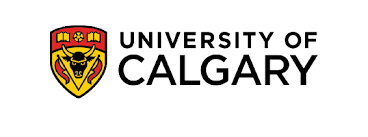University of Calgary students receive international development experience while connecting with Pakistani orphans at monthly virtual meal
One evening this past November, right around the time most kids were settling down with one last bedtime snack, Ayesha Malik and Linden Kronlund found themselves readying to host a virtual breakfast for a group of five children.
It may have been a little on the late side for the two fourth-year Bachelor of Social Work students but owing to the time difference between Alberta and Pakistan, it was a reasonable enough time – 9 a.m. – for their special guests.
The occasion was part of a monthly remote social meetup between children from conflict-affected areas in Pakistan and their Canadian sponsors. Malik and Kronlund co-ordinated the online event as part of their practicum with The Canadian Association for Children’s Education in Pakistan (CACEP), an organization co-founded by their practicum co-supervisor, Dr. Aamir Jamal, PhD. (Their other co-supervisor, Faculty of Social work associate professor Dr. Liza Lorenzetti, PhD, is a CACEP board member.)
Jamal, an associate professor and the director of global engagement with the Faculty of Social Work, explains that CACEP pairs children with scholarship patrons abroad. These patrons then collaborate with a team in Pakistan to support children who have lost one or more of their parents with schooling and living expenses.
He is adamant, however, that the benefits of the arrangement flow in both directions.
“It’s a mutual-aid model in which we are not saying that we are charity just supporting [the children]. We are helping each other in different challenging times,” says Jamal.
This project is not just about a transaction — sending money. It’s about being one family together — becoming a global community.
“When we talk to these children and learn their stories, we are getting energy,” he continues. “We are getting contentment. We are getting inner peace by talking to them.”
Linden Kronlund concurs, saying the experience illustrated to him first-hand the “liberating and unifying” power of education. Additionally, he says further discussions with Jamal have helped him come to understand that dignity is a basic human need.
“When we did the breakfast, Dr. Jamal made some great points about preserving the dignity of each child,” he says. “He told them that they deserve the sponsorship because they have worth and value as who they are. It’s not just a transactional thing were someone is paying for them, and they need to be thankful. They are thankful, but they deserve it.”
Ayesha Malik, whose parents immigrated to Canada from southern Pakistan, said it was interesting to interact with children from the northern part of the country and learn more about variances in culture from region to region. She also says that international development is an area she would like to further explore.
“My passion is human rights, so when I saw that this practicum was an option, and that I shared a similar background with the children in the scholarship program, it was motivating and inspirational for me. I was, like, ‘Oh yes, this is definitely something I want to be part of.’”
Both Malik and Kronlund say they appreciate being able to put faces to their research and have a micro-level engagement in an area where the focus is often on the macro end of the spectrum.
“I would encourage all BSW students going into the field of social work to do the same and make sure they are taking time to connect with the individuals they may be serving on a larger scale,” says Malik. “These experiences can serve as reminders for us of why we do the work we do and can motivate us to strive for more in our professional journey as social workers.”

